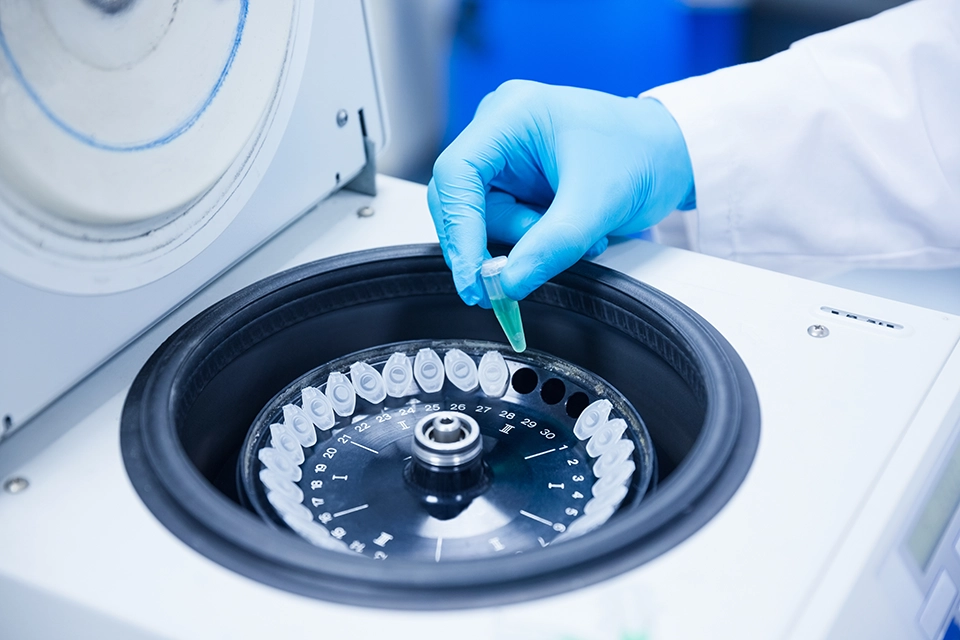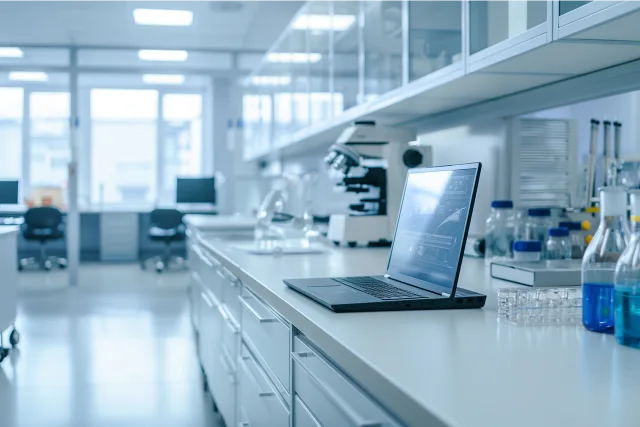At the heart of a biotechnology company is its lab. This is where magic and innovative ideas come to life. By financing biotechnology lab equipment, companies can ensure they have the right equipment at their fingertips. In turn, scientists can turn moon shot ideas into real prototypes that have true commercial viability.
The excitement surrounding biotechnology’s impact is undeniable and has led to a growing number of start-ups and early-stage companies. The global biotechnology market size was estimated at USD 1.37 trillion in 2022 (open the Grand View Research market report).
Advances being spearheaded by the biotechnology industry have the potential to revolutionize many industries and improve the lives of people all over the world.
These include, but aren’t limited to:
- The development of new drugs and treatments for diseases.
- Enhancing food safety, quality, and production methods across the globe.
- Conserving ecosystems, reducing pollution, mitigating climate change, and promoting sustainable practices in various sectors.
Types of Biotechnology Lab Equipment that can be Financed
Depending on the focus of the lab or the scope of the research, companies need an assortment of biotechnology lab equipment. The research & development labs can be equipped with a variety of analytical instruments and specialized equipment.
Here are some common lab equipment you may find in a biotechnology lab:
- Centrifuges: Centrifuges are used to separate components of a sample based on their density using high-speed spinning. They are essential for separating cellular components, organelles, and precipitates from liquids.
- Microscopes: Microscopes are used to visualize and study biological samples at the cellular or molecular level. They can be equipped with various imaging techniques, such as bright-field, phase-contrast, fluorescence, or confocal microscopy.
- Spectrophotometers: Spectrophotometers measure the absorption or transmission of light by a sample at different wavelengths. They are used for quantifying the concentration of biomolecules, such as proteins or nucleic acids, and for analyzing various chemical reactions.
- PCR Machines: Polymerase Chain Reaction (PCR) machines are used to amplify specific DNA sequences through cycles of heating and cooling. They are essential for DNA analysis, gene expression studies, and diagnostic applications.
- Gel Electrophoresis Systems: Gel electrophoresis systems are used to separate and analyze biomolecules, such as DNA, RNA, and proteins, based on their size and charge. They consist of a power supply, gel tank, and visualization system (e.g., UV transilluminator).
- DNA Sequencers: DNA sequencers are used to determine the precise sequence of nucleotides in a DNA molecule. They are essential for genetic research, genomics, and molecular diagnostics.
- Incubators: Incubators provide a controlled environment for the growth and cultivation of cells, microorganisms, or tissues. They maintain temperature, humidity, and CO2 levels for optimal growth conditions.
- Flow Cytometers: Flow cytometers are used for the analysis of cells and particles based on their size, complexity, and fluorescence properties. They are commonly used in immunology, cell biology, and cancer research.
- Mass Spectrometers: Mass spectrometers are used to identify and characterize biomolecules based on their mass-to-charge ratio. They are utilized for protein identification, metabolomics, and lipidomics.
- Liquid Handling Systems: Automated liquid handling systems, such as pipetting robots or liquid handlers, are used for accurate and precise dispensing of liquids in high-throughput experiments, reducing human error and increasing efficiency.
- Biochemical Analyzers: Biochemical analyzers are automated systems that measure various biochemical parameters in biological samples, including blood, urine, or tissue homogenates. They are commonly used in clinical diagnostics and research.
These are just a few examples of the instruments commonly found in biotechnology labs. The specific biotechnology lab equipment can vary based on the specific research focus, budget, and technological advancements in the field.
Financing Biotechnology Lab Equipment
When starting up a biotechnology company, ensuring your laboratory has the right equipment to perform the tasks and research needed is critical. But the specialized nature of the equipment often comes with a high price tag. Plus, the timeline of R&D can be unpredictable.
This means the time spent in the pre-revenue stage can be longer than expected. Biotech start-ups and early-stage companies face immense pressure to maximize their capital while avoiding diluting equity at all costs.
Financing biotechnology lab equipment is simple and straightforward when working with the right partner. Our financing programs are designed to get you the biotechnology lab equipment your research teams without maxing out your budget, ensuring that you have the resources to continue to pay rent, payroll, insurance, and other expenses that are critical to your business.
At Bold View Capital, we help scientific start-up companies get the analytical instrumentation they need through financing and leasing. Although Bold View Capital’s services are enjoyed by well-established companies, we specialize in assisting early stage (seed & series) start-up companies with their equipment financing needs.
For those companies that are new to the concept of financing and leasing, we help make financing biotechnology lab equipment a simple and straightforward process.
Bold Views Capital’s knowledge of science, start-ups and financing has made it a preferred partner for early-stage companies looking to finance scientific instrumentation.
Learn more about our specific programs for financing biotechnology lab equipment.



